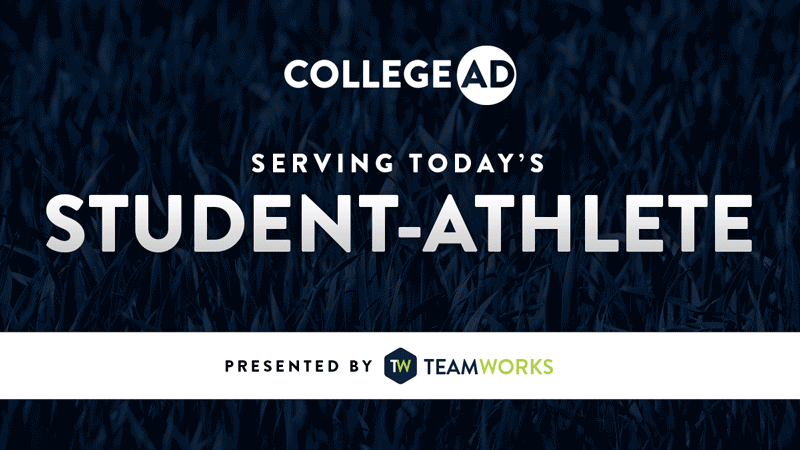
“I always ask the question, ‘how can I help?’ This is new territory for all of us, so if you are the leader of an organization, it’s one of the more important things we do is ask that question. It applies to our coaches, student-athletes and our fanbase.”
Rick Cole, Jr. is the Director of Athletics at Hofstra University with campus being just a short train ride away from New York City. That puts his campus incredibly close to one of the largest COVID-19 outbreaks in the country.
“There’s a lot of bad going on right now,” Cole begins, “Hofstra University is on Long Island, right outside of New York City and the numbers are up, it is very real here. There are six administrators in our athletic department two had it, one lost a parent, and we have a coach that lost a father.”
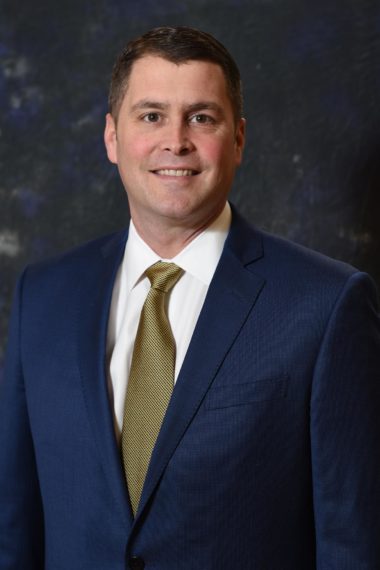 He says even with the outbreak raging in the northeast, his team has never faltered in their focus. They are each there for one important reason.
He says even with the outbreak raging in the northeast, his team has never faltered in their focus. They are each there for one important reason.
“We are here because of and for our student-athletes, without them what are we doing?” he says. “The first question is always ‘how do we help?’ ‘how do we position them for success?’ how do we keep them safe?’ When this began it became about getting them information that is helpful and accurate, we leaned on medical experts and data. When everyone started panicking, I think we did a good job of exhaling and said okay, what are the best things we can do at this moment? What will help us drive our decision making in putting the student-athlete first?”
During normal circumstances, Cole and his team use their proximity to New York City to create a unique student-athlete experience akin to few others in the country.
“We are so lucky to have New York right there, there is something for everyone, no matter who you are or what your interests are. We are so lucky that we can just send someone into the city for meet and greets, we have so many people that come to campus and meet with our student-athletes from the finance industry, the theatre industry, communications, and teaching. We are very blessed that people want to give back and give their time.”
If anything, Cole and his team at Hofstra University have taken this time to refocus their student-athlete forward lens and reconnect with the community.
“The greatest gift we are getting is the ability to reconnect. If we don’t take massive advantage of this opportunity to reconnect, then we’ve really missed an opportunity,” he explains. “There are real things going on, so for us to have the ability to take a breath and reconnect is special.”
Many of the student-athlete welfare programs, already in place at Hofstra University, have been dialed up and just approached a bit differently. Cole explains that his coaches are taking the time to connect to the student-athletes on a personal development level. 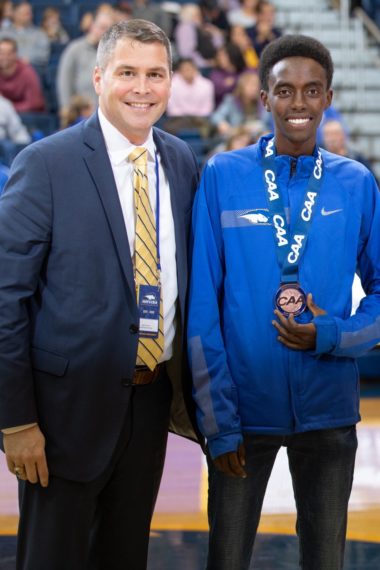
“A lot of our teams have taken this opportunity to talk about team development, to start book clubs or other platforms that are engaging conversation. We can get stuck on the athletics portion of things, but now we have time to read that book on leadership and open a dialogue on what’s going on. Have those aspirational discussions, reactionary discussions, how are you feeling discussions.”
Cole added, “This has given an opportunity for our staff to engage in a very real process with student-athletes, it created opportunities for conversations. The staff can do a lot of development of conversation and talk about who we want to be.”
And who they want to be is an athletic department squarely focused on the professional, personal, and athletic development of their student-athletes. Cole says they are in the business of building special kinds of champions.
“It is a challenge when we look at the data of what’s going on in our country, with unemployment rates and hiring freezes and what’s next,” he acknowledges. “One of my personal mantras is that we have a responsibility that focuses on building champions, in academics, athletics, in the community, and in life. If you look at the processes that go into building champions in those four categories, there’s connectivity and balance. It’s not just about winning championships and using athletes as an instrument for your success, it’s about how we build people to be successful in those four areas.”
Cole explains that those priorities are woven into the very fabric of what it means to be a coach or an athletics staff member at Hofstra University. That attention to academics, community, professional life, and athletics rubs off on their student-athletes in inspiring ways, even during the pandemic.
“Around 91% of our people [student-athletes] are using tools, resources, and collaboration that we have in our career planning and placement programs on campus. There has to be engagement and we invest a lot in our interdependency on the folks that help us help our athletes. We have a fantastic rapport with our student affairs division. We need to have more contacts, listen to our student-athletes, this time period has allowed us time to really work on this.”
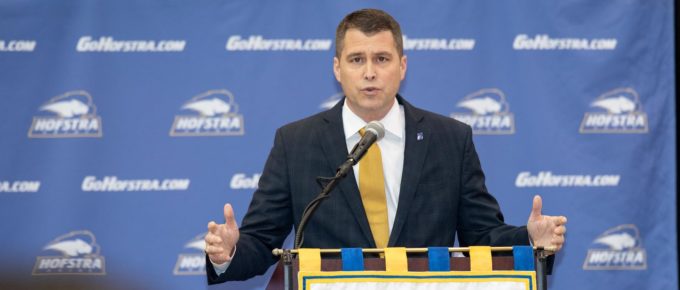
Even Cole is impressed with that number, but he does also keep an eye on the other 9 percent who aren’t yet taking advantage of career planning and placement. He knows there is always room for improvement and insists that engagement is key.
“That number, 91%, shows that it is an expectation from their coaches, not just student services. We are so lucky, our coaches get it, it’s not just relying on student services, it’s the buy-in from everyone that we are building champions. We get evaluated every year on how we are helping prepare them after college, it’s part of our evaluation, there has to be real strategy and time spent. I’m really proud of the people that I work with, because they are all-in, in that regard.”
Right now, his team is working to identify the seniors that will not return for their extra year of eligibility, which he believes to be around 36. Cole explains they are now working to match those seniors up with people in their chosen fields. Hofstra University offers 1-on-1 mentoring in collaboration with career development, leadership curriculums to prepare them for their post-grad professions, as well as a recently formed partnership with 10-year NFL veteran and Hofstra alum Marques Colston.
“Marques Colton is an amazing man, it’s been such a joy to get to know him, he’s been generous to our student-athletes,” Cole says. “He has created Athlete 2.0. It really talks about that bridge of what happens when the ball stops bouncing, how do you go beyond that bench? That transition of the emotional, the mental, how do we take that skillset and transition to performing in the workplace?”
Colston was drafted by the New Orleans Saints in 2006 and retired in 2016. He created a fellowship program in 2019 and is also working with the university on a pilot program, coined Athlete 2.0.
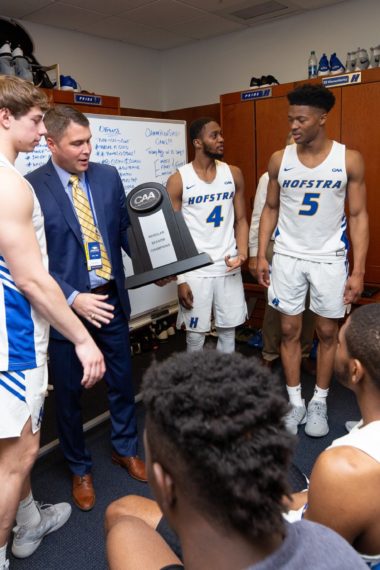 “I think the student-athletes in the program will hear what he has to say a little differently because he is one of them. It’s not just the AD lecturing. He is somebody who gets what it’s like to make that transition. We are going to do a pilot program with him that’s really going to be an emphasis on that transition and how do we take the skills we’ve learned and use them as a leap board and take them to success in their careers and in life.”
“I think the student-athletes in the program will hear what he has to say a little differently because he is one of them. It’s not just the AD lecturing. He is somebody who gets what it’s like to make that transition. We are going to do a pilot program with him that’s really going to be an emphasis on that transition and how do we take the skills we’ve learned and use them as a leap board and take them to success in their careers and in life.”
Cole explains that they are currently identifying the student-athletes who will be part of this groundbreaking program. The curriculum can kick-off virtually, so current circumstances should not interfere with the pilot year.
“It’s going to be a curriculum, more interaction, more engagement of these young people. It’s personal development, life skills development, all the things we wish we had. There are a lot of people who don’t have a voice yet and this will help give them that leadership voice, to grow in that role. It’s building a culture where it is safe to have dialogue. The program does have a curriculum, but it also has group and individual dynamics.”
He expects around 20 student-athletes will be chosen for the inaugural year but plans to expand enrollment as the program progresses. It’s designed to be a year-long curriculum that continues to serve even after they graduate from the university.
“It’s an engagement process, not just a lecture process. We will learn through the pilot process as well. We will learn about that 22-year-old who is graduating and transitioning in this very unique time; because of the uniqueness of the summer, we are preparing to do a lot of virtual preparation ahead of time. We are still working on the dates, but that execution calendar should be done in the next few weeks.”
Launching the Colton Fellowship and Athlete 2.0 curriculum during a pandemic is not ideal, but his team opted to pivot, instead of panic, about the circumstances. He believes it’s an attainable goal that is well worth their time and effort.
“Change in higher education often only comes about when you are forced to, and right now we are forced to, we’ve got to respond, we are forced to respond,” he explains. “We have to look through a different lens and sharpen our focus and think about how we can still be transformational in times of great challenge. If you are committed to helping student-athletes, you are going to have to think differently.” 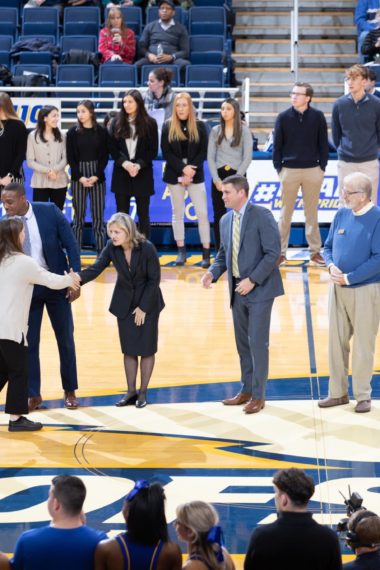
He’s well aware the challenges won’t stop even as stay-at-home orders diminish. The next fiscal year will require special attention and planning, but his department is deeply committed to its goals.
“We know that the fiscal spending in 2020 and 2021 is going to be very unique. Instead of complaining about having less, we have to think about how we serve our student-athletes in this unique time. We’ve got an option – are we going to respond and rise or are we going to complain and talk about why we can’t? We have been able to talk to Marques, we have been able to talk about the leadership program, we are talking about scheduling, about unique fundraising strategies because we have to, there’s no other option here.”
They have opted to keep moving forward during this “downtime” and refocus on what it means to be part of Hofstra University Athletics.
“We can ‘wow’ folks with all of the programming we are doing, but nothing is more valuable than that real connection and finding a way to spend time talking and I think that’s what we’ve been able to do. We do get caught up in the rat race, hopefully, this pause helps us all to reflect. Maybe it will go away at first after we get back to what we classify as normal, but I do believe people are feeling really good about helping and reconnecting.”
